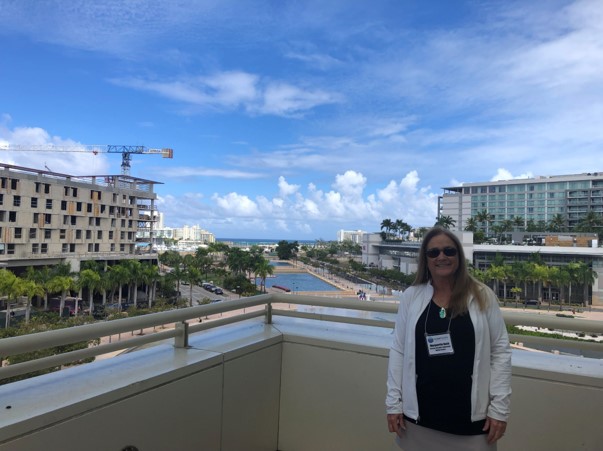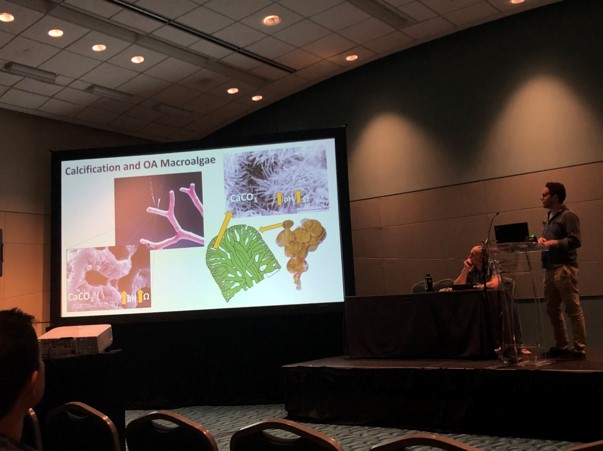

Dr. Marguerite Koch, Professor of Biology, and her Integrative Biology PhD student, Mr. Conall McNicholl, from the Department of Biological Sciences, presented at the 2019 Association for the Sciences of Limnology and Oceanography (ASLO) in San Juan, Puerto Rico this last week (February 23 - March 2, 2019). They discussed results from microsensor and calcification experiments conducted at FAU and Little Cayman Island (LCI) Research Center on coral reef macroalgal responses to ocean acidification. Tropical reef macroalgae are important for reef structure, development and coral larval settlement.
 Their talks were part of a special session on Ocean Acidification that included talks on how algae, sediment, corals, lobsters and crabs might be influenced by the oceans becoming more acidic due to greater carbon dioxide in the atmosphere rapidly dissolving into seawater on a global scale. Many marine calcifying species can biotically regulate their calcification processes, even under ocean acidification, but there is an energetic cost. For marine plants, they require light and photosynthesis to meet these energetic needs. Thus, macroalgae are most vulnerable to ocean acidification at night, due to dissolution. Dissolution is the opposite of calcification where calcium carbonate dissolves into calcium and carbonate ions. Dr. Koch’s lab is one of only a few labs in the world focusing on ocean acidification effects on tropical reef macroalgae. Their current research is being supported by a National Science Foundation grant.
Their talks were part of a special session on Ocean Acidification that included talks on how algae, sediment, corals, lobsters and crabs might be influenced by the oceans becoming more acidic due to greater carbon dioxide in the atmosphere rapidly dissolving into seawater on a global scale. Many marine calcifying species can biotically regulate their calcification processes, even under ocean acidification, but there is an energetic cost. For marine plants, they require light and photosynthesis to meet these energetic needs. Thus, macroalgae are most vulnerable to ocean acidification at night, due to dissolution. Dissolution is the opposite of calcification where calcium carbonate dissolves into calcium and carbonate ions. Dr. Koch’s lab is one of only a few labs in the world focusing on ocean acidification effects on tropical reef macroalgae. Their current research is being supported by a National Science Foundation grant.